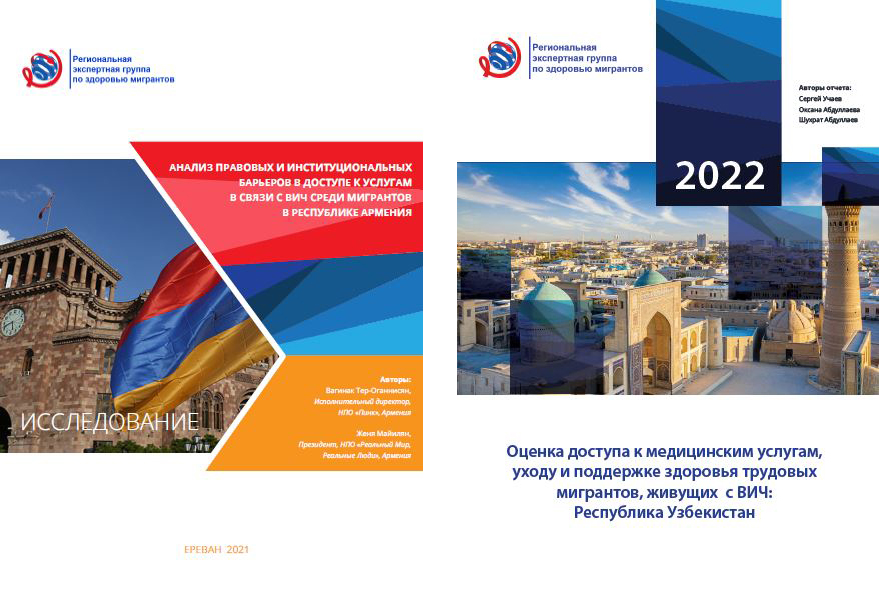The Regional Expert Group on Migration and Health conducted two studies in two EECA countries— Armenia and Uzbekistan aimed to gain an understanding about the legal and institutional barriers the returned migrants face: “Situation analysis of migration HIV-related health services for returned migrants in Armenia and Uzbekistan”.
The Russian Federation, which is the host country for the largest number of migrants in the EECA region, remains one of 19 countries in the world which still have deportation policies for foreigners living with HIV. It is now increasingly recognized that the existence of legislative measures to restrict the entry for foreigners living with HIV and deportation provisions lead to hidden epidemics in countries. Returned migrants living with HIV are likely to contribute to acceleration of the HIV epidemic in their home countries, especially in Central Asia, the source of as many as half of labor migrants to the Russian Federation. Due to the RF’s restrictions on access to HIV-related services, it is important to determine whether people who have returned from migration face barriers in accessing HIV/AIDS treatment.
The study included collection and reviewing of existing national epidemiological surveillance data on HIV and migrants in sending countries, identification of barriers to accessing HIV related services for returning migrants, analysis of national policy in the area of migrant health, including the support migrants living with HIV abroad, treatment and support of international migrants in Armenia and Uzbekistan.
As part of the study, in-depth interviews were conducted with migrants who have experience of interacting with the health care system, as well as interviews with experts engaged in HIV prevention and treatment (managers and employees of health facilities, social workers, and activists). This study was the first in the region to directly analyze the voices of migrants living with HIV.
The texts are available in Russian, Armenian and Uzbek languages: https://migrationhealth.group/hiv/documents/
